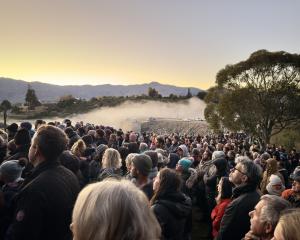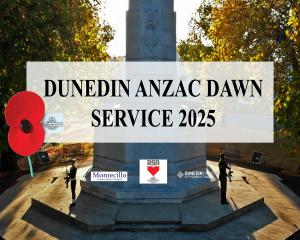
Last year, the Southern District Health Board (SDHB) examined alcohol-related presentations at its three emergency departments and found a similar pattern of drunken patients, mainly young men, cluttering the system and delaying care being given to other patients.
Queenstown’s reputation as a party town was borne out in the Lakes Hospital emergency department, where 71% of patients with ailments directly related to drinking were aged 18-34.
Alcohol accounted for 1 in 20 of all patients who turned up at the Lakes emergency department, and doctors there treated an average of two people a day with preventable drinking-related problems.
In Southland, where there was a similar number of alcohol-impaired patients, 51% of them were aged 18-34.
Half of all drunken patients in Dunedin were aged 18-24 - while not all would be students, with the University of Otago and Otago Polytechnic close to the city’s hospital many would have been.
Otago University Students’ Association (OUSA) chief executive Debbie Downs said alcohol consumption remained a New Zealand societal problem, and awareness and education should start from an early age at home, as well as in schools.
"OUSA’s underpinning strategy is one of harm reduction: this includes alcohol," she said.
"As such, OUSA incorporates this strategy into all offerings; among others ‘controlled’ events across the student calendar, owning Starters Bar and being a role player in Good One party register service."
OUSA signed the Sophia Charter - named after the late Sophia Crestani - earlier this year.
Signatories have pledged to enhance the safety and wellbeing of the student community in North Dunedin.
Unsurprisingly, the busiest times for alcohol-related cases were Saturday nights and Sunday mornings.
"Alcohol harm is one of the biggest preventable public health issues facing emergency departments," SDHB medical officer of health Susan Jack said.
"We hope these reports can help to inform alcohol policy, and how and where we can work with our communities to reduce alcohol related harm."
Dr Jack said the figures were only a snapshot of alcohol-related harm in the community, and only reflected those who were brought in for emergency treatment.
The report said alcohol-related issues were avoidable, and apart from the harm that people caused themselves, they also diverted time and resources from other patients.
"People can be rude, aggressive, or - in the worst circumstances - even violent towards doctors and nurses.
"This behaviour is not always limited to the individual requiring medical care as they may also be accompanied by associates who have also consumed high levels of alcohol.
"On these occasions, hospital security staff maybe required to restrain the patient and/or associate which is once again an avoidable drain on resources."
At a glance in 2019
Dunedin Hospital
ED presentations 45,165
Because of alcohol 1633
Immediately life-threatening 65
Imminently life-threatening 198
Potentially life-threatening 546
Southland Hospital
ED presentations 36,664
Because of alcohol 566
Immediately life-threatening 21
Imminently life-threatening 97
Potentially life-threatening 295
Lakes Hospital
ED presentations 13,052
Because of alcohol 548
Immediately life-threatening 9
Imminently life-threatening 55
Potentially life-threatening 210
Comments
Part of growing up and being young, or too much student loan money ? We do know that the brain is still developing at this age, which could indicate why unwise decisions are being made.
Then again, it would also be interesting to see/know whether there's a statistical link between excessive drinking and depression and suicide in this age group, as there is usually an underlying reason or cause which isn't always investigated...












